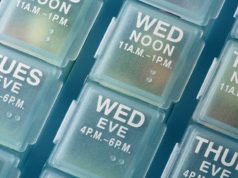Higher likelihood of receiving an anticholinergic medication may contribute to other inequities
By Lori Solomon HealthDay Reporter
FRIDAY, May 26, 2023 (HealthDay News) — Black individuals are significantly less likely than non-Hispanic White individuals to fill a prescription for a β3-adrenoceptor agonist for overactive bladder (OAB), according to a study published online May 24 in JAMA Network Open.
Douglas Luchristt, M.D., M.P.H., from Duke University in Durham, North Carolina, and colleagues evaluated whether patient race, ethnicity, and sociodemographic characteristics are associated with receipt of anticholinergic versus β3-agonist OAB medications. The analysis included data from the 2019 Medical Expenditure Panel Survey.
The researchers found that of the roughly 2.9 million individuals filling OAB medications in 2019, about 2.2 million (75.0 percent) filled an anticholinergic prescription and 590,255 (19.9 percent) filled a β3-agonist prescription, whereas 5.1 percent filled prescriptions for both medication classes. The median out-of-pocket cost for β3-agonists was $45.00 per prescription versus $9.78 for anticholinergics. Non-Hispanic Black individuals were less likely than non-Hispanic White individuals to fill a prescription for a β3-agonist versus an anticholinergic medication (adjusted odds ratio, 0.46), when adjusting for insurance status, individual sociodemographic factors, and medical contraindications. Odds of filling a β3-agonist prescription were even lower for non-Hispanic Black women (adjusted odds ratio, 0.10).
“Given the association of anticholinergic overactive bladder medications with the risk of cognitive decline, the observed differences in filled prescriptions may underlie and propagate existing inequities in the U.S. health care system,” the authors write.
Several authors disclosed financial ties to industry.
Copyright © 2023 HealthDay. All rights reserved.








